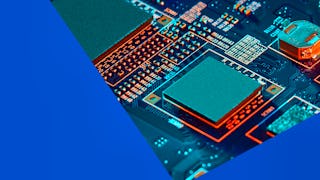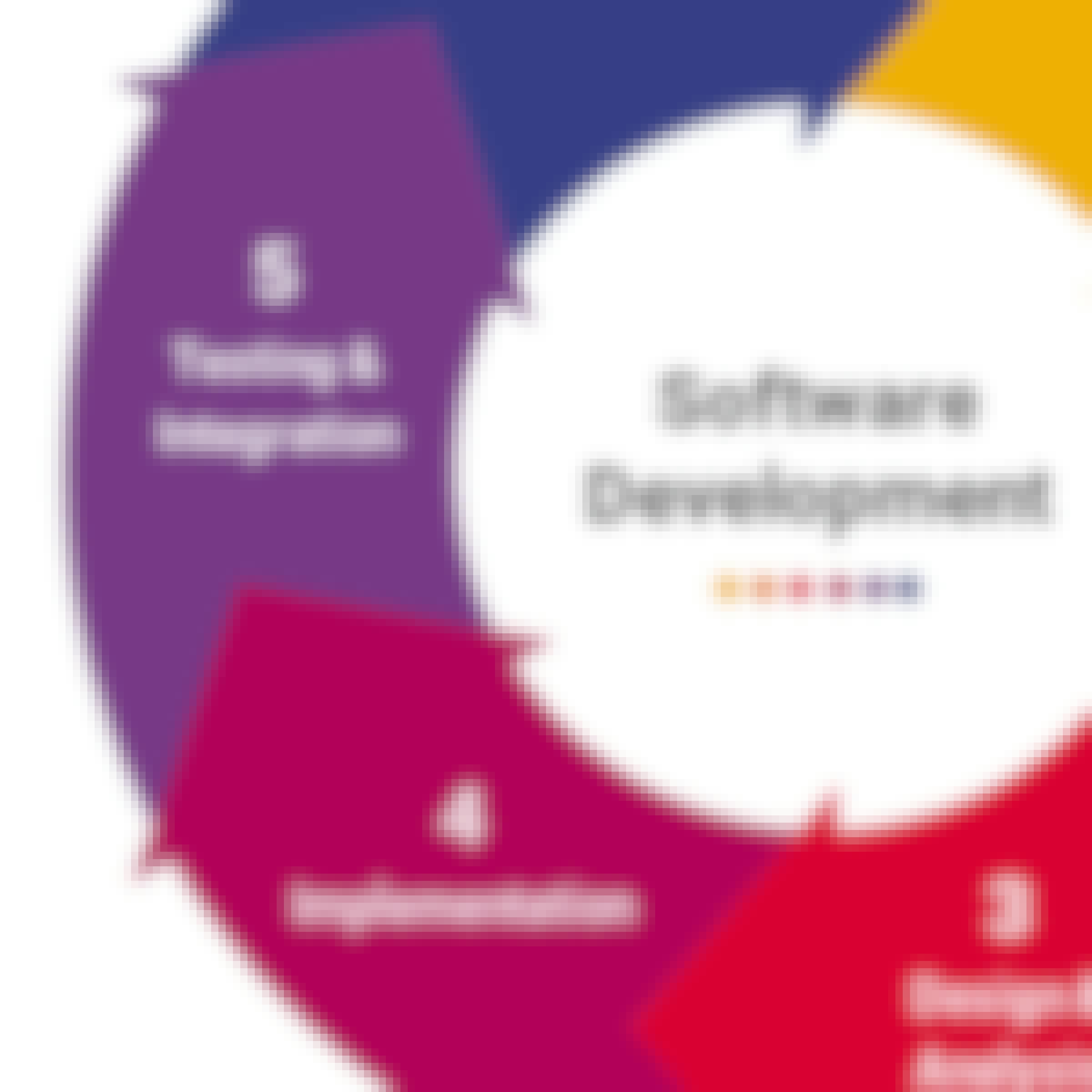- Browse
- Machine Design
Results for "machine design"
 Status: Free TrialFree TrialU
Status: Free TrialFree TrialUUniversity of Toronto
Skills you'll gain: Diversity Awareness, Diversity and Inclusion, Innovation, Business Analytics, Analysis, Sociology, Market Opportunities, Social Justice, Case Studies, Human Centered Design, Leadership Development, Risk Mitigation
4.8·Rating, 4.8 out of 5 stars328 reviewsBeginner · Course · 1 - 4 Weeks
 Status: PreviewPreviewP
Status: PreviewPreviewPPontificia Universidad Católica de Chile
Skills you'll gain: Field-Programmable Gate Array (FPGA), Hardware Design, Computational Logic, Application Specific Integrated Circuits, Computer-Aided Design, Electronic Hardware, Electrical Engineering, Electronic Systems, Electronics, Semiconductors, Electronic Components, Computer Architecture, Programming Principles, Engineering Design Process, Embedded Systems, Schematic Diagrams, Simulation and Simulation Software
4.6·Rating, 4.6 out of 5 stars70 reviewsMixed · Course · 1 - 3 Months
 Status: NewNewStatus: PreviewPreviewU
Status: NewNewStatus: PreviewPreviewUUniversity of the Arts London
Skills you'll gain: PyTorch (Machine Learning Library), Artificial Intelligence, Creativity, Artificial Intelligence and Machine Learning (AI/ML), Creative Thinking, Generative AI, Artificial Neural Networks, Responsible AI, Creative Problem-Solving, Creative Design, Machine Learning Methods, Data Ethics, Deep Learning, Critical Thinking
4.4·Rating, 4.4 out of 5 stars9 reviewsBeginner · Course · 1 - 4 Weeks
 Status: PreviewPreviewB
Status: PreviewPreviewBBanco Interamericano de Desarrollo
Skills you'll gain: Entrepreneurship, Design Thinking, Budget Management, Lean Methodologies, Financial Management, Innovation, Adaptability, Creativity, Fundraising, Professional Networking
4.8·Rating, 4.8 out of 5 stars575 reviewsBeginner · Course · 1 - 4 Weeks
 Status: PreviewPreview
Status: PreviewPreviewSkills you'll gain: Fraud detection, Generative AI, Responsible AI, Regulatory Requirements, Compliance Management, Governance, Risk Management, Data Ethics, Anomaly Detection, Artificial Intelligence, AI Enablement, Model Evaluation, Forecasting
4.4·Rating, 4.4 out of 5 stars39 reviewsIntermediate · Course · 1 - 4 Weeks
 Status: Free TrialFree TrialS
Status: Free TrialFree TrialSScrimba
Skills you'll gain: React Redux, React.js, Cascading Style Sheets (CSS), Web Components, JavaScript Frameworks, UI Components, HTML and CSS, Routing Protocols, Front-End Web Development, User Interface (UI), Web Frameworks, Maintainability, Authentications, Web Development Tools, Application Frameworks, Application Programming Interface (API), Web Design, Restful API, Javascript, Web Development
4.8·Rating, 4.8 out of 5 stars29 reviewsIntermediate · Specialization · 1 - 3 Months
 Status: PreviewPreviewT
Status: PreviewPreviewTThe State University of New York
Skills you'll gain: Lifelong Learning, Growth Mindedness, digital literacy, Willingness To Learn, Critical Thinking, Emerging Technologies, Professional Development, Data Ethics, Computer Literacy, Safety and Security, Creativity, Technology Strategies, Problem Solving, Web Content Accessibility Guidelines, Collaboration, Communication
4.3·Rating, 4.3 out of 5 stars443 reviewsBeginner · Course · 1 - 3 Months
 Status: Free TrialFree Trial
Status: Free TrialFree TrialSkills you'll gain: Convolutional Neural Networks, Random Forest Algorithm, Recurrent Neural Networks (RNNs), Decision Tree Learning, Deep Learning, Applied Machine Learning, Artificial Neural Networks, Artificial Intelligence and Machine Learning (AI/ML), Machine Learning Algorithms, Predictive Modeling, Supervised Learning, Computer Vision, Classification Algorithms, Natural Language Processing
4.9·Rating, 4.9 out of 5 stars14 reviewsIntermediate · Course · 1 - 3 Months
 Status: Free TrialFree TrialT
Status: Free TrialFree TrialTThe Hong Kong University of Science and Technology
Skills you'll gain: White-Box Testing, Acceptance Testing, Software Development Methodologies, Configuration Management, Debugging, Software Development Life Cycle, Software Testing, Software Development, Software Engineering, Unified Modeling Language, System Testing, Integration Testing, User Acceptance Testing (UAT), Unit Testing, Secure Coding, Test Case, Requirements Analysis, Waterfall Methodology, Agile Methodology, Project Management
4.6·Rating, 4.6 out of 5 stars130 reviewsIntermediate · Course · 1 - 3 Months
 Status: Free TrialFree Trial
Status: Free TrialFree TrialSkills you'll gain: Musical Composition, Music, Instrumental Music, Music Performance, Education Software and Technology, Music Theory, World Music, Teaching, Classroom Management, Cultural Responsiveness, Active Listening, Creativity, Collaboration
4.6·Rating, 4.6 out of 5 stars104 reviewsIntermediate · Course · 1 - 4 Weeks
 Status: PreviewPreviewT
Status: PreviewPreviewTTechnical University of Munich (TUM)
Skills you'll gain: Social Impact, Experimentation, Program Evaluation, Community Development, Sustainable Development, Systems Thinking, Research, Human Centered Design, Culture, Cultural Diversity, Creative Problem-Solving, Case Studies, Critical Thinking
4.8·Rating, 4.8 out of 5 stars44 reviewsBeginner · Course · 1 - 4 Weeks
 U
UUniversity of Illinois Urbana-Champaign
Skills you'll gain: New Product Development, Product Development, Design Thinking, Market Research, Quantitative Research, Product Management, Customer Insights, Consumer Behaviour, Market Analysis, Target Market, Forecasting, Innovation, Needs Assessment, Analysis, Data Collection, Technology Solutions
3.7·Rating, 3.7 out of 5 stars32 reviewsMixed · Course · 1 - 3 Months
In summary, here are 10 of our most popular machine design courses
- Gender Analytics for Innovation: University of Toronto
- Electrónica Digital Bit a Bit: Fundamentos, Verilog y FPGA: Pontificia Universidad Católica de Chile
- Introduction to Creative AI: University of the Arts London
- Emprendimientos creativos: Banco Interamericano de Desarrollo
- GenAI for Fraud Detection and Compliance: Coursera
- Advanced React Skills: Scrimba
- Exploring Emerging Technologies for Lifelong Learning and Success: The State University of New York
- Build Decision Trees, SVMs, and Artificial Neural Networks: CertNexus
- Software Engineering: Implementation and Testing: The Hong Kong University of Science and Technology
- Teaching Popular Music in the Classroom: Berklee










